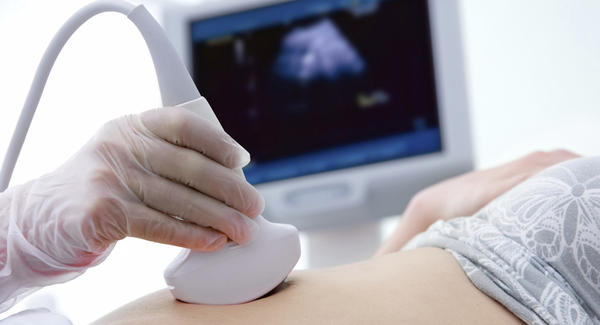The first few days of our daughter’s life were spent in the neonatal intensive care unit (NICU) of the hospital where I delivered. Her tiny bare body, with just the eyes covered, lay under blue lights in an attempt to lower the bilirubin levels. My husband and I, as first-time parents, couldn’t do anything other than weep, watch and hope as she struggled to lay there, weighing merely 1.8 kgs, away from her mother’s warmth, on that hot glass plate. She was suffering from physiologic jaundice that is a common and usually harmless condition in newborn babies but can be dangerous if goes untreated. We were lucky that she responded positively to the treatment and her bilirubin levels came under control with 72 hours of treatment. Those days showed me the helplessness families must feel when faced with medical challenges like neonatal infections (sepsis).
Neonatal sepsis is broadly classified into two types as the causes are different in both the groups.
Early onset sepsis (EOS) – Early onset can be defined as an infection that begins within 7 days of birth. This is acquired by transmission from the mother during pregnancy or is acquired from mother’s vaginal tract during delivery. Baby develops symptoms usually soon after birth.
Late-onset sepsis (LOS) manifests after 7 days of birth and is usually acquired from the environment or other infected patients.
Common Early Onset Infections are-
- Group B Streptococcal Disease (GBS)– It is one of the most common bacteria causing infections in newborns, like sepsis, pneumonia, and meningitis. Babies usually get the bacteria from their mothers during birth. Many pregnant women carry these bacteria in the rectum or vagina, where they can easily pass to the newborn if the mother hasn’t been treated with antibiotics. The symptoms start showing within the first week of life. Common symptoms are problems with breathing or feeding, a high temperature, listlessness, or unusual crankiness.
- Listeriosis– This is another bacterial infection caused by Listeria monocytogenes bacteria that can lead to diseases such as pneumonia, sepsis, and meningitis in newborns. Babies can get the bacteria from their mothers if they contract listeriosis while pregnant. Food that isn’t properly cleaned, pasteurized, or cooked may give someone listeriosis. In severe cases, listeriosis may lead to premature delivery or even stillbirth. Babies born with listeriosis may show signs of infection similar to those of GBS.
- E. Coli Infection– This otherwise friendly bacteria, present in everyone’s body, can lead to urinary tract infections, sepsis, meningitis, and pneumonia in newborns. Babies can become infected during childbirth, when they pass through the birth canal, or by coming into contact with the bacteria in the hospital or at home. Common symptoms include fever, unusual fussiness, listlessness, or lack of interest in feeding.
- Meningitis- This infection is caused by viruses, bacteria or fungi. It causes the inflammation of the membranes surrounding the baby’s spinal cord and brain. Newborns can pick up one of these germs during birth or from their surroundings, particularly if they have weakened immune systems. Symptoms of infection in newborns aren’t very specific and may include lasting crying, irritability, sleeping more than usual, lethargy, refusing to take the breast or bottle, low or unstable body temperature, jaundice, pallor, breathing problems, rashes, vomiting, or diarrhea. As the disease progresses, a baby’s fontanel (or soft spot) may begin to bulge.
- Sepsis- This is an extremely serious infection that involves the spread of germs throughout the body’s blood and tissues. It can be caused by viruses, fungi, parasites, or bacteria. Common symptoms may include change in heart rate, breathing problems, jaundice, trouble feeding, low or unstable body temperature, lethargy, or extreme fussiness.
- Conjunctivitis– Also known as Pinkeye, this causes an inflammation of the eye’s covering membranes which appears as redness and swelling in the eye, usually accompanied by a discharge. Both bacterial and viral infections can cause conjunctivitis in newborns. Usually your child can get this infection due to the germs present in its surroundings.
- Candidiasis– Candida is a common yeast found on everyone’s body. However, an overgrowth of the yeast causes this fungal infection. Most often, newborns pick up this infection from the mother’s vagina during delivery. They can also pick it up during breastfeeding. Candidiasis most often shows itself in the form of diaper rash. It can also occur in the form of oral thrush in the mouth and throat. It causes cracks in the corners of the mouth and white patches on the tongue, palate, lips, and insides of the cheeks.
- Neonatal Herpes- Caused by a highly contagious virus called herpes simplex, this is a very serious infection in newborns because of under-developed immune system. You can pass the virus to your baby at the time of a vaginal birth, if you had genital herpes within the last six weeks of your pregnancy. Your baby can also get herpes if he or she is kissed by someone with a cold sore.
- German Measles– It is also called Rubella. This infection is caused by the rubella virus and affects your baby’s lymph nodes and skin.
- Syphilis– Another serious & highly contagious bacterial infection, Syphilis can be passed from a mother to her baby at the time of pregnancy. It can often be life-threatening in infants.
Can Neonatal Infections Be Prevented?
Yes! Preventive measures like prenatal tests, maternal monitoring and some basic precautionary tips can help early diagnosis of these infections in a pregnant woman and can lower the chances that she will pass it to her baby.

Women can help protect themselves and their unborn babies by:
- making sure they’ve been immunized against rubella and chickenpox before becoming pregnant
- consuming clean washed hygienic food
- maintaining basic hygiene discipline like regularly washing hands, keeping surroundings clean etc
- avoiding all contact with cat and other animal faeces to lower the risk of infections such as listeriosis and toxoplasmosis
- practicing safe sex to avoid sexually transmitted diseases (STDs)
What should a new mother look out for?
While most newborns enter the world healthy, sometimes infants develop conditions that require medical tests and treatment. Thus while choosing the maternity hospital, one should ensure the following-
- Since there are higher chances of the newborn catching infections from the mother during the time of birth, it is very important that regular screening for infections like HIV, Rubella etc are carried out. The healthcare provider must have the facilities of thorough checks & tests before and during pregnancy.
- The doctor/healthcare provider must stress on early & exclusive breastfeeding as breast milk protects against several infections and builds the baby’s immunity.
- The hospital must follow hygienic intrapartum practices. This includes hand-washing by birth attendants, disinfection and sterilization of equipment, minimization of vaginal examinations, and prompt diagnosis and treatment of prolonged labor.
- The hospital must provide sufficient postpartum care for new mother and the baby like improved maternal health and nutrition, maternal and neonatal immunizations etc.
- When newborns get sick, they may need to spend more time in the hospital. Thus NICU section must be available with all relevant and essential facilities for the baby to recover.
- A lot of infections are present in the environment, so the hospital chosen for birthing must be clean, hygienic, well ventilated and comfortable.
If, as a first-time parent, you are already feeling bogged down by the checklist, there exists an easier solution!
Online community, ‘Together for her’, comes as a first step towards honest parenting, as a platform for mothers speaking openly about how their experience with healthcare providers has been. Together for Her can help you can make an informed decision keeping your expectations & needs on top of priorities. It has created a number of resources for pregnant women to help them access the best care.
Learn more about Together here and don’t forget to share your maternity experience/review by clicking here.
Go Mommy!

I seriously didn’t know these are the common infections as I haven’t seen anyone in our family facing this touchwood. I can imagine your plight during ur newborn days. It’s really an eyeopening read so I can help the needy by sharing this. Love you for writing this
i wish as a new mom i knew all this . First few months were so hard for us as new parents. New parents must read this article.
My baby was whisked away to the NICU just as she was born cos of low apgar score. And that was so scary. Parents of infants and newborns go through all this and more. Its essential they are well read about potential infections. Great article.
I want aware of any of these information. A very information, bookmarking
Thank you!
Neonatal sepsis is so horrible.. Yes a mother should take care and avoid a chance for it… Still the early education for such infectation lead you in your bad days like-new when your child hit by such things.